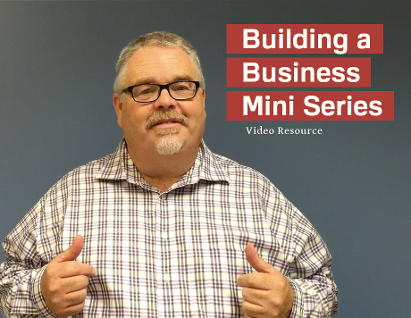 Have you ever heard the saying, “Choose a job you love, and you will never have to work a day in your life?” If you’re a creative person, you may have wondered whether you can really make a living doing what you love. The answer is “yes!” The creative sector is a leader in worldwide economic growth. These days, lots of people are starting their own businesses and are successful at turning their passion into profit. But to become an effective business owner, it’s important to learn the skills required to manage your business effectively.
Have you ever heard the saying, “Choose a job you love, and you will never have to work a day in your life?” If you’re a creative person, you may have wondered whether you can really make a living doing what you love. The answer is “yes!” The creative sector is a leader in worldwide economic growth. These days, lots of people are starting their own businesses and are successful at turning their passion into profit. But to become an effective business owner, it’s important to learn the skills required to manage your business effectively.
The first step to becoming a successful creative business owner is to make a strategic plan. Determine your mission and vision, and outline measurable goals for your business. Your plan will help guide day-to-day decisions and enable you to evaluate your progress. This can sometimes be a difficult step for creatives. That’s because you probably have a lot of great ideas and you’re in love with all of them. Strategic planning, by its very nature, requires a narrowing of priorities, and it can be frustrating to weed out projects about which you’re excited. Strategic planning requires you to focus on the projects that will help you effectively and efficiently meet your business objectives.
Another important ingredient in a successful business is setting and meeting deadlines. Meeting customer deadlines is essential, but deadlines are also critical for effective time management and ensuring that business operations are focused. Creatives sometimes struggle with sticking to deadlines. One reason is that when inspiration strikes, creative people tend to want to act on it right away, distracting them from a project with a looming deadline. Or perhaps there is a lack of inspiration for the project at hand. Sometimes a creative person is overflowing with inspiration for several projects and there just aren’t enough hours in the day to complete them all. In other words, it’s difficult to put a deadline on creativity. To be a successful business owner, you’ll need to learn to manage deadlines in order to keep your customers happy and maintain efficiency.
Learn to hold yourself accountable. Setting expectations for your business is critical, but expectations are useless unless there is also accountability. For creative people, accountability can sometimes be a struggle. The notion of holding yourself accountable may seem to be in opposition to the idea of doing what you love. But even for solopreneurs, accountability is important to help you avoid the temptation to take on too many projects. Holding yourself accountable will enable you to focus on the project you’re committed to instead of taking on another project that would interfere with meeting your deadline.
Don’t try to reinvent the wheel. Connect with an advisor or mentor who has the experience and expertise to guide you in making important decisions and coach you on ways to operate and grow your business. It can be difficult for creatives to seek out and accept advice from a mentor, because creative people, by their nature, “think outside of the box” and have their own unique perspective. But no matter what creative field you’re in, it’s likely that there are already established routes to success. As part of the ENCORE Business Builders program you have the opportunity to work one-on-one with an advisor who has already traveled the path you’re on.
Staying on top of the finances for your small business can be both daunting and tedious. As a creative, you are likely more of a big picture person. In addition, the whole idea of a budget is the kind of limiting concept creatives tend to avoid. As a businessperson, however, the importance of properly handling the financial aspects of your business can’t be ignored. For creative people, preparing a visual representation of your finances can work well. Take the time to learn about financial recordkeeping, and consider hiring a bookkeeper to, at a minimum, help set up a system that works for you.
Starting your own business can be rewarding both financially and in terms of personal satisfaction. Turning your passion into profit requires more than just being good at what you do. By learning the business management skills you need to keep things running smoothly, it’s possible to earn a living doing what you love.





